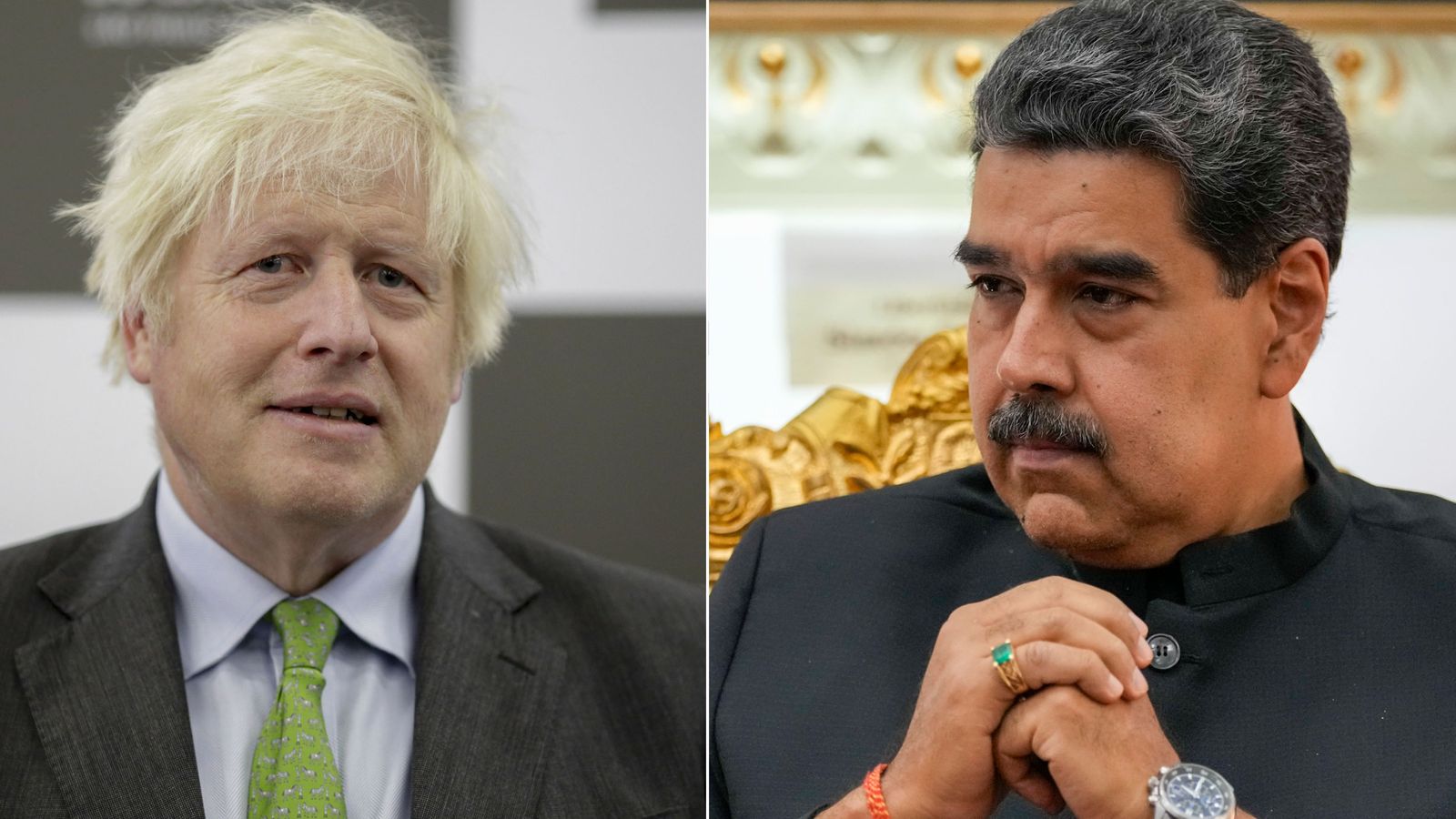Boris Johnson flew to Venezuela for talks with president Nicolas Maduro

Boris Johnson flew to Venezuela last month to meet the country’s controversial leader Nicolas Maduro.
A spokesperson for the former prime minister confirmed the meeting took place after The Sunday Times reported he had flown there for “unofficial talks” with the Venezuelan president, who is an ally of Russia.
Mr Johnson met Venezuelan government officials with “active support” from Foreign Secretary Lord Cameron, the spokesperson said, as well as the Foreign, Commonwealth and Development Office (FCDO).
The purpose of the meeting was to “emphasise the need for Venezuela to embrace a proper democratic process,” the spokesperson said.
“He repeatedly made clear there can be no hope of normalisation in relations until Venezuela fully embraces democracy and respects the territorial integrity of its neighbours,” they added.
“He also set out the case for the cause of Ukrainian victory to the government of Venezuela.”
Read more:
Johnson denies claims he demanded $1m for interview
Drakeford concerned Johnson’s handling of COVID was ‘genuine threat to UK future’
Mr Johnson texted Lord Cameron on his way to what the foreign secretary’s spokesperson described as a “private visit”.
Mr Johnson has been a vocal supporter of Ukraine since Russia’s full-scale invasion began during his tenure as PM – and his strong relationship with President Volodymyr Zelenskyy has continued since he resigned last year.
Advertisement
Mr Maduro is considered by many countries to be an authoritarian leader who has not allowed free and fair elections, with the US and some other Western countries, including the UK, claiming his re-election in 2018 was illegitimate.
But Russia and China have regularly backed the controversial leader, who first became Venezuela’s interim president in March 2013 after the death of Hugo Chavez.
During violent protests in Venezuela in early 2019 following his re-election, the Kremlin labelled Mr Maduro a “legitimate president” and said attempts to remove him were illegal.
Despite other coup attempts, Mr Maduro has remained in power, while the country continues to experience a political and economic crisis which has led to millions of Venezuelans leaving the country since 2015.
Mr Johnson’s spokesperson’s comments about the need for Mr Maduro to “respect the territorial integrity of its neighbours” seemingly refer to Venezuela’s dispute with Guyana over jungle territory containing huge amounts of oil and gas.
The disputed region is Esequibo in western Guyana – a 62,000 square-mile area around the Essequibo river. Guyana and Venezuela both claim ownership of it – a dispute dating back to the late 19th century, when Guyana was still a British colony.
Tensions have escalated since a referendum in Venezuela in early December last year, in which a huge majority of voters are said to have supported their government’s claim to Esequibo.